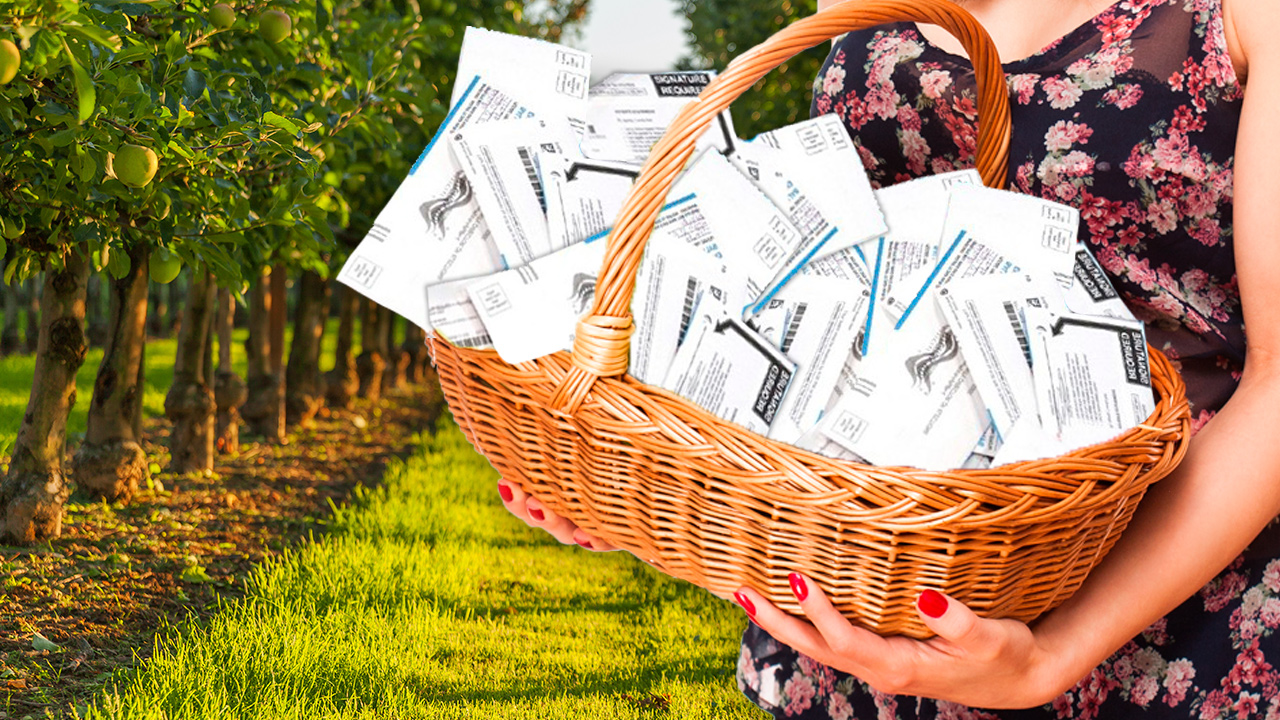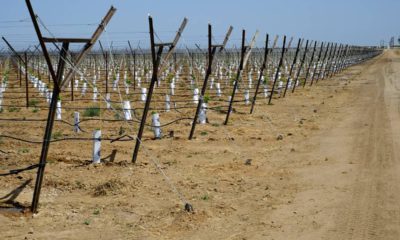Published
6 years agoon

TJ Cox was down by more than 4,000 votes as returns were counted the night of the Nov. 6 election.
As it stands now, he will be elected to Congress in the 21st district by nearly 600 votes.
That drastic turnaround in Cox’s and other California races is one of the top post-election questions.
House Speaker Paul Ryan (R-Wisc.) called the Golden State’s results “bizarre.” He received a sharp rebuke from California Secretary of State Alex Padilla, among others, noting that it is just democracy in action.
Other analysts are saying “ballot harvesting” powered California’s Blue Wave.
Ballot harvesting is the practice of third-parties collecting filled out, sealed, and signed ballots and returning them to election offices.
Cox’s campaign tells GV Wire it did not engage in the practice during the campaign.
But Republican campaign experts say that Democratic operatives took advantage of the legal practice in last month’s election.
“Absolutely, ballot harvesting played a very significant role,” Republican campaign consultant Dale Neugebauer told the San Francisco Chronicle.
Shawn Steel, the Republican National Committeeman from California, wrote recently in the Washington Times, “There’s no evidence of ballot box shenanigans. No need. Democrats know it’s easier to erode voter integrity laws than to stuff ballot boxes.”
Republicans first sounded the alarm of “ballot harvesting” when California legislators passed the law in 2016.
The term “ballot harvesting,” is slang, and could be viewed as a pejorative term. Some define it as filling out a ballot for another person, which is illegal.
But, in this case, harvesting means collecting and returning the ballot of another. That became legal in California after the passage of AB 1921 in 2016.
Before, only family members or those living in the same household could return ballots sealed in envelopes and signed by the voter. The idea was rooted in allowing those physically unable to attend the polling site to vote.
AB 1921 expanded who could collect and return ballots to anyone. However, ballots still must be signed and placed in a sealed envelope.
The bill passed decisively in the Democratically-controlled chambers, and received the support of many voter-rights and labor groups.
Opponents then, as now, expressed concern the effect such practices would have on abuse.
“Just like it’s implemented in that great, liberal bastion state of Texas, this would simply allow anyone to turn in a ballot.”—Assemblywoman Lorena Gonzalez
During Assembly and committee hearings, David Wolfe, legislative director from the Howard Jarvis Taxpayers Association, warned of ballot harvesting.
“We do believe that could lead to potential ballot harvesting, vote harvesting issues … and the potential for fraud,” Wolfe told the Assembly Elections and Redistricting Committee on April 27, 2016.
Assemblyman Matthew Harper (R-Huntington Beach) wondered about prohibiting campaigns from collecting and turning in ballots.
The bill’s author, Assemblywoman Lorena Gonzalez (D-San Diego), said there would be no way to differentiate between paid campaign workers and others. She said that restricting such workers from being paid on a per-ballot basis would prevent fraud. However, the law allows other forms of compensation such as being paid per hour.
She said that signatures on ballot envelopes would prevent fraud, too.
Gonzalez sarcastically noted that “just like it’s implemented in that great, liberal bastion state of Texas, this would simply allow anyone to turn in a ballot.”
She also mentioned Arizona as a state that allowed harvesting. However, that state’s Legislature made the practice illegal in 2016. Courts later upheld the repeal.
When Harper mentioned ballot harvesting, Gonzalez responded, “I’m not sure of your term ‘harvest.’ It sounds like organs. I don’t think there’s a lot of that going on.”
Not all Democrats were comfortable with campaigns collecting ballots.
Assemblyman Rich Gordon (D-San Mateo), who served until 2016, expressed reservations. While he voted for AB 1921 in committee, he did not cast a vote on the floor.
David Taub has spent most of his career in journalism behind the scenes working as a TV assignment editor and radio producer. For more than a decade, he has worked in the Fresno market with such stops at KSEE-24, KMJ and Power Talk 96.7. Taub also worked the production and support side of some of TV sports biggest events including the Super Bowl, the NBA Finals and NASCAR to name a few. Taub graduated from the University of Michigan with dual degrees in communications and political science. You can contact David at 559-492-4037 or at Send an Email



California Pins Vaccine Hopes on Biden Administration


Walters: After COVID-19, Drought Threat Still Looms


Fierce California Winds Fan Fires, Topple Trees and Trucks


Monarch Butterfly Population Moves Closer to Extinction


Newsom Sets New Tone for California, White House Partnership


California Guard Pleads Guilty to Lies in Inmate’s Death




B.P.
December 1, 2018 at 1:22 pm
Yeah, because it’s *terrible* if more people are able to vote.
Terrible for Republicans, that is, who cannot seem to perform much beyond the angry white guy demographic.